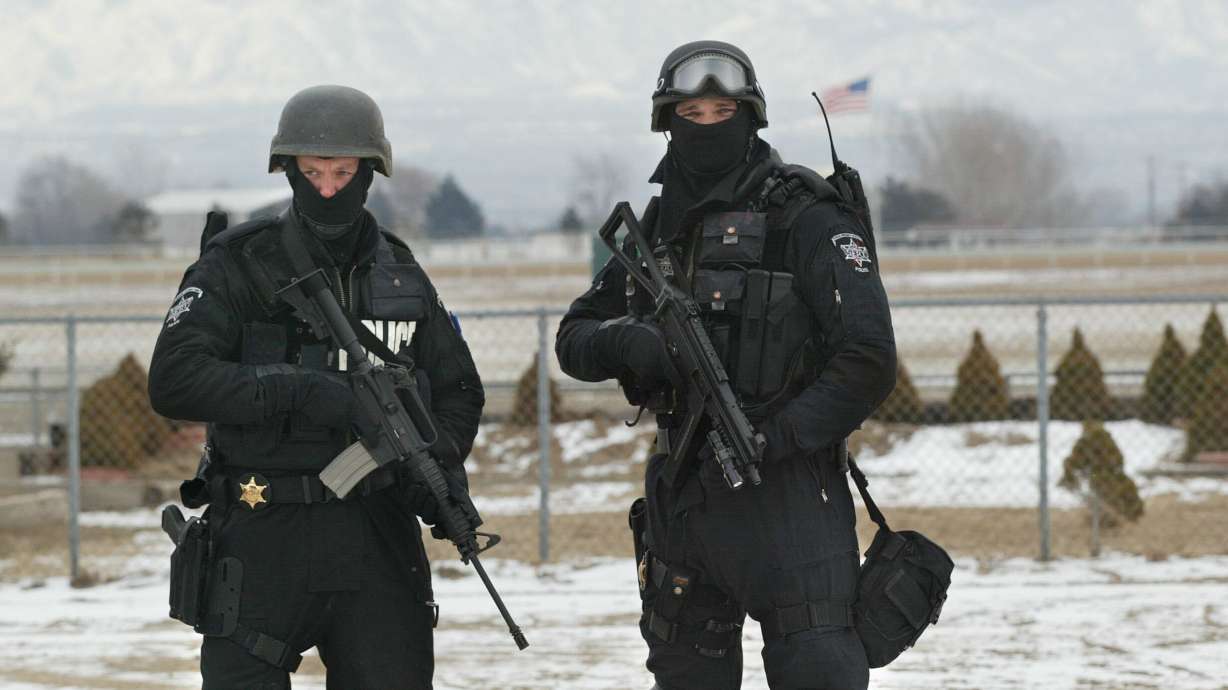Estimated read time: 3-4 minutes
This archived news story is available only for your personal, non-commercial use. Information in the story may be outdated or superseded by additional information. Reading or replaying the story in its archived form does not constitute a republication of the story.
SALT LAKE CITY — After the 9/11 terrorist attacks against the United States just months before the start of the 2002 Winter Games in Salt Lake City, organizers recognized changes were going to be needed to the security measures overseen by the federal government.
Fraser Bullock, the chief operating officer of the 2002 Games and the leader of Utah's bid to host again in 2034, recalled spending "three days after 9/11, locked in a room, going through every aspect of our security plan to come up with recommendations" while the U.S. Secret Service and other federal agencies did the same.
Saturday's assassination attempt on former President Donald Trump at a campaign rally in Pennsylvania that left one spectator dead is once again focusing attention on security provided by the federal government for events such as the Republican National Convention underway in Milwaukee.
Just like the Republican and Democratic political conventions held every four years to nominate presidential candidates, an Olympics in the United States is designated a "National Special Security Event" with the Secret Service in charge.
"It's a federal responsibility," Bullock said, citing the presidential directive signed by then-President Bill Clinton in the aftermath of the deadly bombing during the 1996 Summer Games in Atlanta by a domestic terrorist who wasn't captured until 2003.
The directive made the Secret Service the lead agency for all national security events "because in Atlanta, it wasn't clear who was in charge," he said, so when the bomb went off, due to "the lack of clarity of communication channels, it wasn't communicated timely enough to react."
The 2002 Olympics were different, said Bullock, now the president and CEO of the Salt Lake City-Utah Committee for the Games. The Secret Service headed up the security team, which included representatives from other federal agencies as well as Utah unified Olympic security command.
Bullock praised the work of the Secret Service in keeping the Games safe, as well as all of the "immensely capable and dedicated" public safety personnel at all levels, calling it "really amazing, what they were able to pull together." A similar structure is planned for 2034, he said.
"We think it's an excellent model that engages all levels of government: federal, state and local," Bullock said. "Whether it be EMS or fire or law enforcement or military, everybody's coordinated into one command and strategy."
Security measures at the 2002 Games ended up being much more prominent. Military jets patrolled the skies and soldiers carried automatic weapons outside venues, joining volunteers at security checkpoints to send Games-goers through magnetrometers and to search their bags.
"Our previous plan was all the 'mag and bags' would be staffed by volunteers," Bullock said. Instead, at least two of the five volunteers at each checkpoint were replaced with military personnel, likely from the National Guard.
"People would see the presence and hopefully, if there were any bad actors, they'd get discouraged by that," Bullock said, part of the effort to add to the show of security intended to reassure the public and participants after the terrorist attacks on Sept. 11, 2001.
"We already had a really, really good security plan," he said, "based on having a really secure perimeter and making sure that anybody who gets into the venue, whether it's a pedestrian or a vehicle, is fully screened so nothing can get in, no weapons or anything."
With the "intense scrutiny" already on the attempted assassination, Bullock expects security improvements to emerge. Other Olympics over the next decade, including the 2024 Summer Games in Paris, set to send athletes down the Seine River during Opening Ceremonies, likely also will offer lessons for a 2034 Winter Games in Utah.
"We're still 10 years out," Bullock said. "It's going to be a long time."
Security won't be mentioned in the half-hour presentation the bid committee is making to the International Olympic Committee ahead of a final vote on 2034, held in Paris on July 24, Pioneer Day in Utah, Bullock said, describing it as "celebratory."
He said in conversations, committee officials "passed along their strong regrets and sadness," but did not raise security questions.









